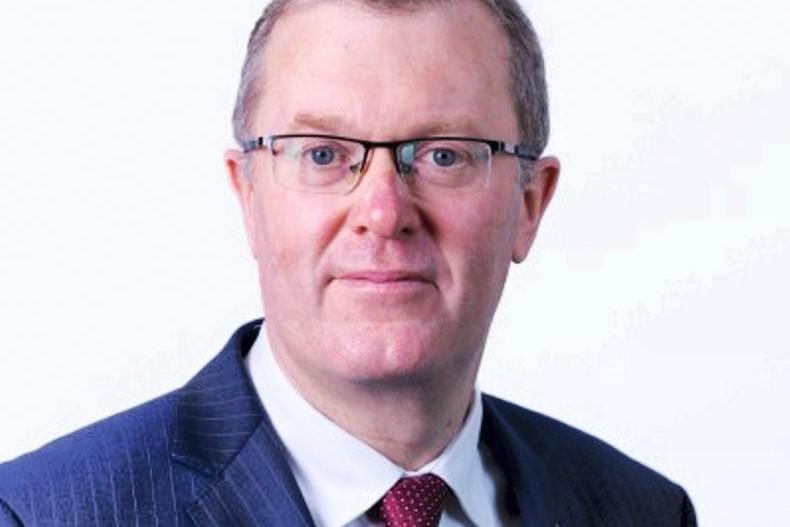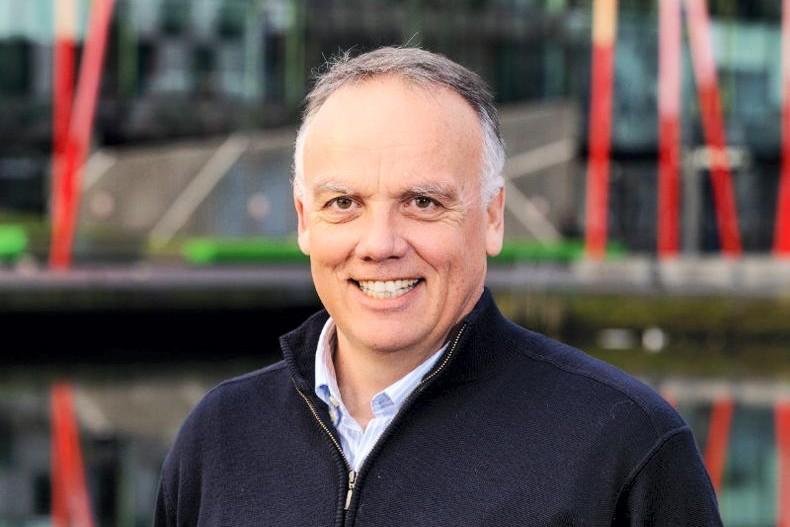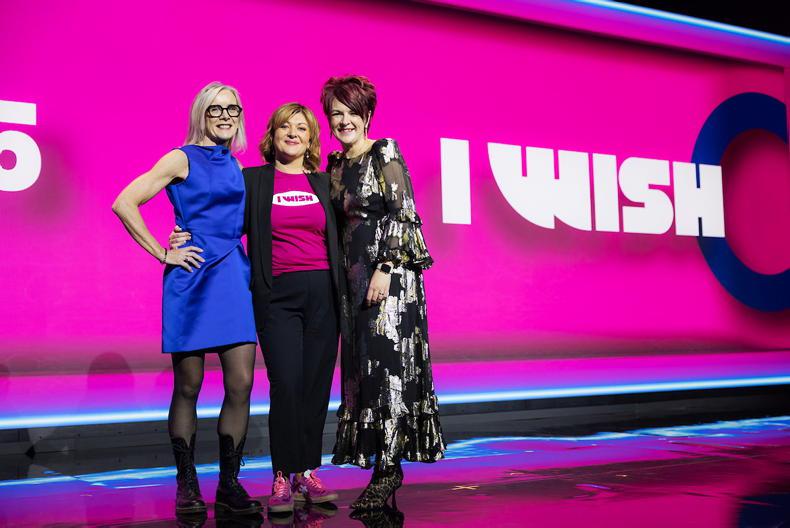Thinking about a career change and don’t know where to start? You are not alone.
Over the last 17 months, while we’ve had time to reflect on our lives, we’ve had a lot of thinking time and to some of it has led to that hard life questions.
The periods during lockdown gave some of us a new pace of life and we are not prepared to go back to the old.
For others it gave them space to find their passion and the belief that if the world can change our lives overnight then why can’t we do the same to ourselves?
“There’s usually a turning point, a trigger, that will get them to pick up the phone to me,” explains the owner of Clarence Consulting Valerie O’Hanlon. “It’s because they’re unfulfilled, they’re not happy, and they’re not enjoying what it is that they’re doing. They get to the stage where it’s all-consuming, all they think about is they are not happy in their job and then it falls into their personal life as well.”
While changing your career can be an extremely liberating experience for some, for others it can be rather daunting. There are so many factors to consider, especially if you have dependants and more than yourself just to think about. Getting help from a career coach might just ease that worry for you.
“It’s important to remember that a change in career doesn’t always mean a ‘big’ move, it could be a blend of what you’re doing at present and something else. It may mean developing a side hustle until you get the finances right,” advises Valerie.
Career coaches are not there to look into your past, but rather your present situation and help you move forward to the future you are looking for.
Valerie has very kindly given us an overview of the thought process her clients will experience with career coaching by breaking down some of her coaching sessions for us.
Why is it that you want to move jobs, what’s wrong with what you’ve got at the moment? We look at the reality of your situation and what’s going on there. What’s important to you?
Especially if you’re coming from an agricultural background, if you’re taking over the farm and you think this isn’t what I want to be doing. What are your values? There is a lot of values around legacy, land, and loyalty to your family, where you might feel that it’s kind of a burden on you to stay and do what it is that you’re expected to do.
We would look at those values and other things that might be important to you.
You might have a sense of adventure in there, how does that equate with being on a farm in the middle of the midlands – how do you match those values? What do they look like? What would they look like in your ideal world? What would those values look like in your daily life?
What are your strengths. Strengths are a huge piece these days around the whole ‘positive psychology’. Look at your strengths while trying to keep things in the positive, as well. Rather than saying, ‘I have to do this, I’m not really good at it, or it doesn’t give me energy when I do it’, instead you’re looking at the things which do give you energy. We look at your skills and your abilities.
Make a plan: education, research, networks, resources
What does the future look like? What do you want it to look like? Then we know where we’re starting, and we know where we want to end. And then it’s easier to fill in the gaps in between and make
a plan around that.
Take action (can include CV/LinkedIn)
What action do you need to take? It might be further education that you need to do, it might mean joining a network group to develop contacts with people and collaborate with others on different projects or doing some research. If you have a farming background, it doesn’t necessarily mean that you’re not going to do farming – you might have more of a techie kind of strength and you want to take an ag-tech path. You might want to start a business like a farm shop or beekeeping and making your own honey. Developing products on the farm that you can then sell – maybe you might be more into the selling side of things, out and about meeting people and trying to get your product on the shelf.
Moving forward: it’s playing to your strengths, being a bit innovative, looking at possibilities, being curious, moving forward and just going for it.
Read more
Pitseal: an agri start-up with a difference
University College Cork driving innovation within the dairy sector
Thinking about a career change and don’t know where to start? You are not alone.
Over the last 17 months, while we’ve had time to reflect on our lives, we’ve had a lot of thinking time and to some of it has led to that hard life questions.
The periods during lockdown gave some of us a new pace of life and we are not prepared to go back to the old.
For others it gave them space to find their passion and the belief that if the world can change our lives overnight then why can’t we do the same to ourselves?
“There’s usually a turning point, a trigger, that will get them to pick up the phone to me,” explains the owner of Clarence Consulting Valerie O’Hanlon. “It’s because they’re unfulfilled, they’re not happy, and they’re not enjoying what it is that they’re doing. They get to the stage where it’s all-consuming, all they think about is they are not happy in their job and then it falls into their personal life as well.”
While changing your career can be an extremely liberating experience for some, for others it can be rather daunting. There are so many factors to consider, especially if you have dependants and more than yourself just to think about. Getting help from a career coach might just ease that worry for you.
“It’s important to remember that a change in career doesn’t always mean a ‘big’ move, it could be a blend of what you’re doing at present and something else. It may mean developing a side hustle until you get the finances right,” advises Valerie.
Career coaches are not there to look into your past, but rather your present situation and help you move forward to the future you are looking for.
Valerie has very kindly given us an overview of the thought process her clients will experience with career coaching by breaking down some of her coaching sessions for us.
Why is it that you want to move jobs, what’s wrong with what you’ve got at the moment? We look at the reality of your situation and what’s going on there. What’s important to you?
Especially if you’re coming from an agricultural background, if you’re taking over the farm and you think this isn’t what I want to be doing. What are your values? There is a lot of values around legacy, land, and loyalty to your family, where you might feel that it’s kind of a burden on you to stay and do what it is that you’re expected to do.
We would look at those values and other things that might be important to you.
You might have a sense of adventure in there, how does that equate with being on a farm in the middle of the midlands – how do you match those values? What do they look like? What would they look like in your ideal world? What would those values look like in your daily life?
What are your strengths. Strengths are a huge piece these days around the whole ‘positive psychology’. Look at your strengths while trying to keep things in the positive, as well. Rather than saying, ‘I have to do this, I’m not really good at it, or it doesn’t give me energy when I do it’, instead you’re looking at the things which do give you energy. We look at your skills and your abilities.
Make a plan: education, research, networks, resources
What does the future look like? What do you want it to look like? Then we know where we’re starting, and we know where we want to end. And then it’s easier to fill in the gaps in between and make
a plan around that.
Take action (can include CV/LinkedIn)
What action do you need to take? It might be further education that you need to do, it might mean joining a network group to develop contacts with people and collaborate with others on different projects or doing some research. If you have a farming background, it doesn’t necessarily mean that you’re not going to do farming – you might have more of a techie kind of strength and you want to take an ag-tech path. You might want to start a business like a farm shop or beekeeping and making your own honey. Developing products on the farm that you can then sell – maybe you might be more into the selling side of things, out and about meeting people and trying to get your product on the shelf.
Moving forward: it’s playing to your strengths, being a bit innovative, looking at possibilities, being curious, moving forward and just going for it.
Read more
Pitseal: an agri start-up with a difference
University College Cork driving innovation within the dairy sector









SHARING OPTIONS